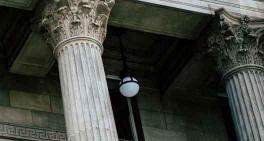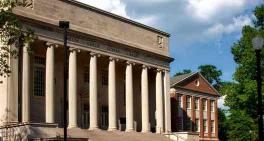Bolivians urge US court to restore $10M verdict on killings
Legal Events
Bolivians asked a U.S. appeals court Tuesday to restore a $10 million jury verdict against a former president and defense minister of the South American nation over killings by security forces during 2003 unrest there.
Lawyers for a group of indigenous Bolivians told a three-judge panel of the 11th U.S. Circuit Court of Appeals that a Florida judge was wrong to set aside last year's verdict.
The jury found against former Bolivian President Gonzalo "Goni" Sanchez de Lozada and former defense minister, Jose Carlos Sanchez Berzain. Both have been living in the U.S. after fleeing Bolivia in 2003.
We have faith that the court of appeals will see what the Bolivian people and the American jury also saw: that Goni and Sanchez Berzain are responsible for these killings, and that justice must be done," said Teofilo Baltazar Cerro, a plaintiff whose pregnant wife Teodosia was shot and killed during the unrest.
The judges did not indicate when they would rule. In the lawsuit, relatives of eight Bolivians who died claimed the two officials planned to kill thousands of civilians to crush political opposition during civil unrest known as the "Gas War." The lawsuit was filed under the Torture Victim Protection Act, which authorizes suits in the U.S. for extrajudicial killings.
The unrest erupted in the fall of 2003 as street protests in Bolivia over use of the country's vast natural gas reserves boiled over. Demonstrators threw up street blockades of flaming debris and rubble in several places including on the outskirts of the capital of La Paz, and violent clashes between police and security forces with the civilian protesters turned deadly.
At times, government forces intent on clearing street barricades fired on demonstrators, mainly in the El Alto municipality adjacent to La Paz, leading to deaths. Other fatalities were reported in confrontations between security forces and Bolivian miners marching to the capital in support of the protesters. Many of the civilian victims were indigenous Aymara Bolivians.
Related listings
-
Court’s Conservatives Seem to Back Trump on Immigration
Legal Events 11/13/2019The Supreme Court’s conservative majority seems prepared to allow the Trump administration to end a program that allows some immigrants to work legally in the United States and protects them from deportation.There did not appear to be any suppo...
-
Court to hear arguments on Maryland political ads law
Legal Events 11/01/2019After revelations of Russian meddling in the 2016 presidential election, Maryland legislators passed a law that many believe has a laudable purpose: preventing foreign interference in local elections.But its sweeping scope sparked a First Amendment o...
-
In or out? Court case on job bias casts pall on LGBT fests
Legal Events 10/13/2019National Coming Out Day festivities were tempered this year by anxiety that some LGBT folk may have to go back into the closet so they can make a living, depending on what the Supreme Court decides about workplace discrimination law.But the mere fact...

New Rochelle, New York Personal Injury Lawyers
If you or a loved one has been injured in an accident, contact Kommer, Bave & Ollman, LLP, in New Rochelle, New York, immediately. We can answer all your questions and work with you to determine if you have the grounds for a personal injury lawsuit. The attorneys at our firm are determined to resolve even the most difficult of cases. We will work closely with you to determine the best course of action to get your claim or case resolved in the most efficient way possible. We will fight for your right to compensation! No one should have to suffer a financial burden from the result of another person’s carelessness. The attorneys at Kommer, Bave & Ollman, LLP will aggressively fight to ensure that justice is served on your behalf.




